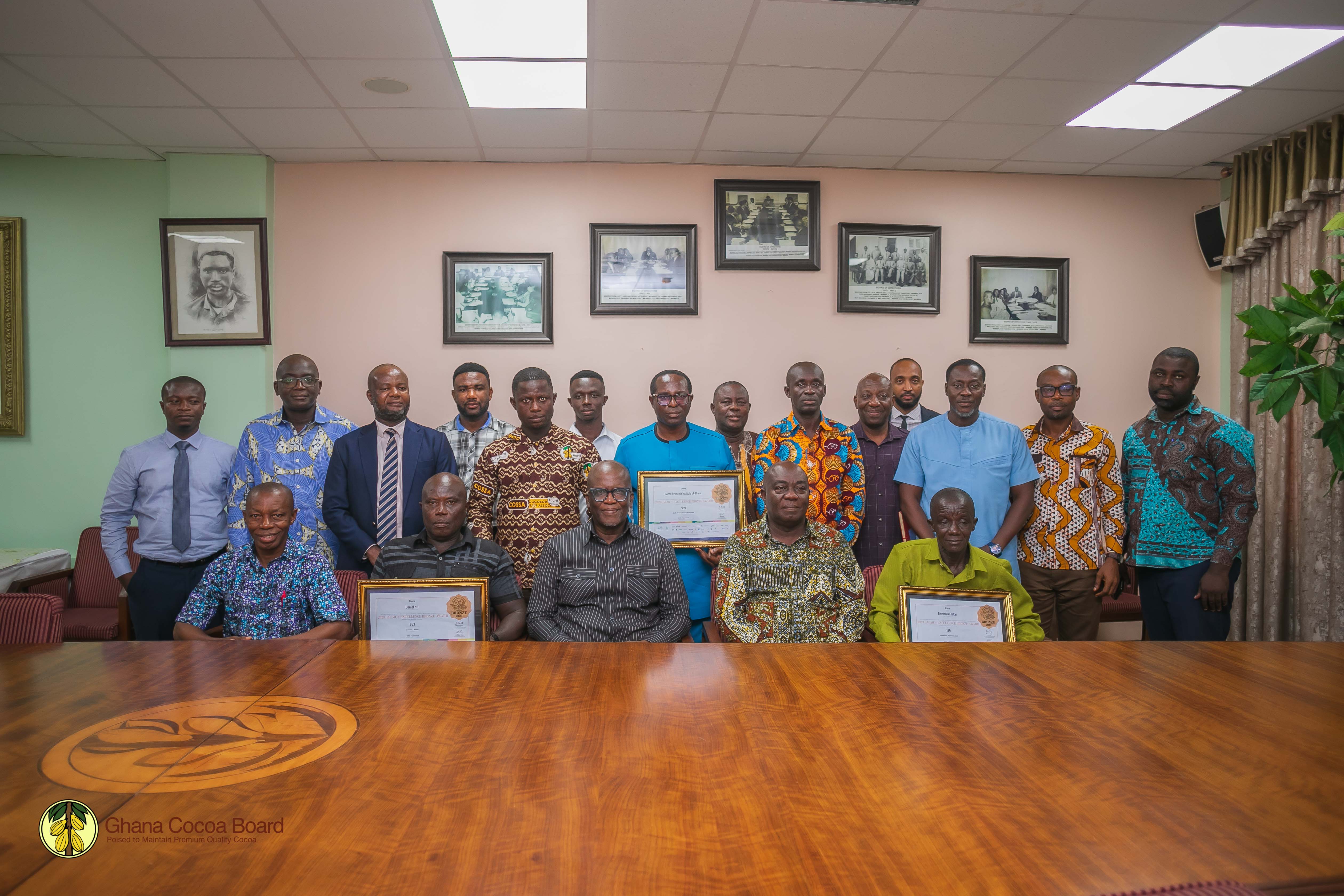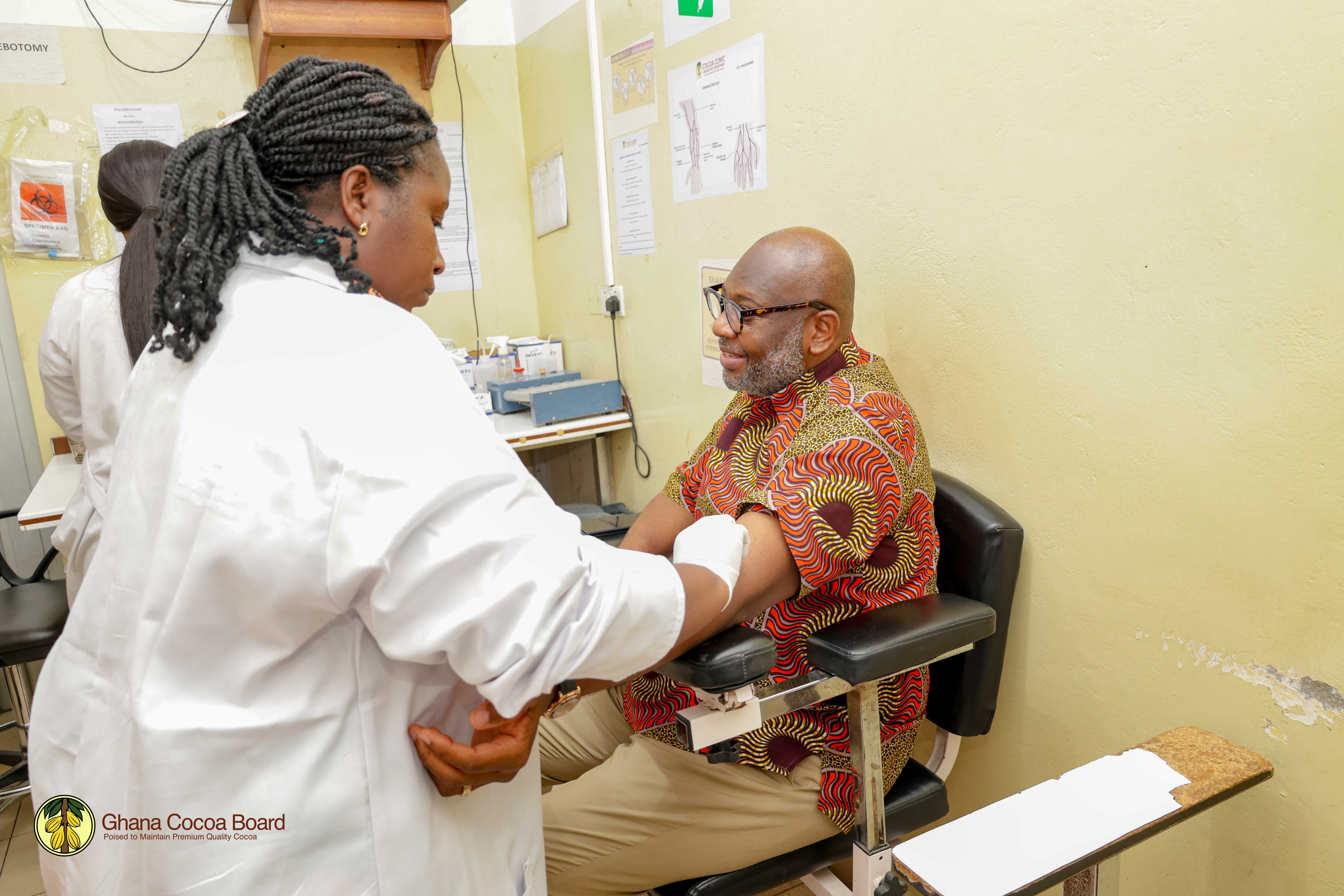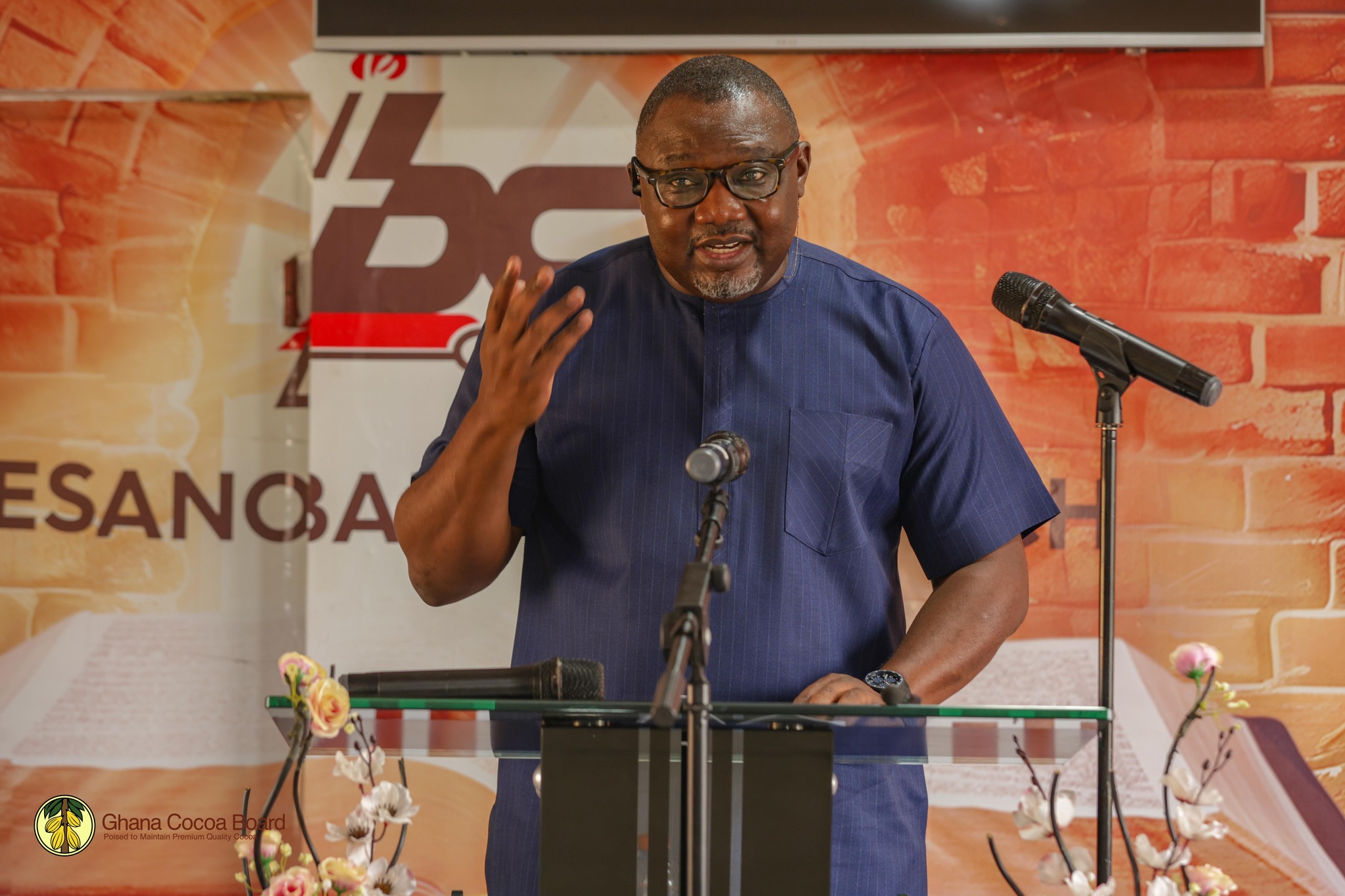COMMUNITY EXTENSION AGENTS TRAINED IN FARMER-MANAGED NATURAL REGENERATION
Date: 07th October 2023
Tropenbos Ghana has teamed up with the Ghana Cocoa Board (COCOBOD) to implement a working landscapes project which aims to reduce deforestation caused by agricultural expansion in Juaboso-Bia and Sefwi-Wiawso to achieve climate-smart landscapes.
The organization has also established a network with other relevant stakeholders within the Juabeso-Bia and Sefwi-Wiawso landscapes to build the capacity of smallholder farmers to adopt improved agroforestry technologies to increase tree cover and contribute significantly to climate resilience in landscapes. One of such technologies is Farmer Managed Natural Regeneration (FMNR).
The FMNR is cost-effective and recognizes local ingenuity. However, there is low capacity of key stakeholders to enable full appreciation of its enormous potential and promote its use in restoring adequate tree cover in cocoa landscapes.
As part of the working landscapes interventions to bridge this knowledge gap, a series of practical FMNR trainings for smallholder farmers, agricultural and cocoa extension agents and officers have been held to build their capacities in this area.
The first of such workshops brought together 17 Community Extension Agents (CEAs) drawn from the Sui River landscape which includes Juaboso, Adjoafua, Boako, Bodi, as well as Bibiani and Sefwi Bewail districts to be trained on Farmer Managed Natural Regeneration at the Tano Suhien Forest Reserve in the Boako district.
The purpose of the practical field training on Farmers Managed Natural Regeneration (FMNR) for CEAs is to give them a deeper understanding of the method and encourage them to apply the knowledge and skills gained to advise smallholder cocoa farmers on the appropriate use of FMNR to increase tree cover in cocoa farms.
The Western Regional Extension Officer for CHED, Mr Frank Osei Kofi encouraged the CEAs to attach great importance to the training and urged them to assist in realising the core objectives of the use of the FMNR.
On his part, the Project Manager and Facilitator, Mr. Kwame Appiah Owusu said to achieve climate resilient in Juaboso-Bia and Sefwi-Wiawso landscapes by 2030, practical measures must be put in place to help contain the global average temperature and manage the harsh impact of climate change on agriculture. He added that CHED is a dominant force in reinforcing training during farmer engagements to help farmers keep up with modern and conventional means of dealing with climate change issues.
He emphasized that canopy cover is a major concern when it comes to carbon stock sequestration, hence the need to promote agroforestry in cocoa-growing landscapes.
Mr Owusu further advised the participants to ensure the credibility of the sources of information given to their farmers. He urged them not to focus only on economic trees but match other tree qualities for the sake of biodiversity conservation while ensuring they do not pose safety risks to cocoa trees. He recommended the Guide to Forest Trees by William Ntim for further learning purposes.
In attendance were Christiana Otchere and Audrey Afutu, both from Tropenbos Ghana.
Story by:
Frank Osei Kofi
Regional Extension Officer, Western North.
Other News / Articles you might be interested in.

COCOBOD HONOURS GHANAIAN COCOA FARMERS FOR EXCELLENCE AT INTERNATIONAL COCOA AWARDS
Management of Ghana Cocoa Board (COCOBOD) has honoured the winners of the 2023 International ...
Read More
DR. RANSFORD ABBEY LEADS BY EXAMPLE, UNDERTAKES ANNUAL MEDICAL EXAMINATION AT COCOA CLINIC
The Chief Executive of the Ghana Cocoa Board (COCOBOD), Dr. Ransford Abbey, has ...
Read More
COCOA MEDIA HUB LAUNCHED TO ENHANCE OPEN GOVERNANCE AND FARMER ENGAGEMENT
Ghana Cocoa Board, along with various stakeholders, has participated in the official launch ...
Read More